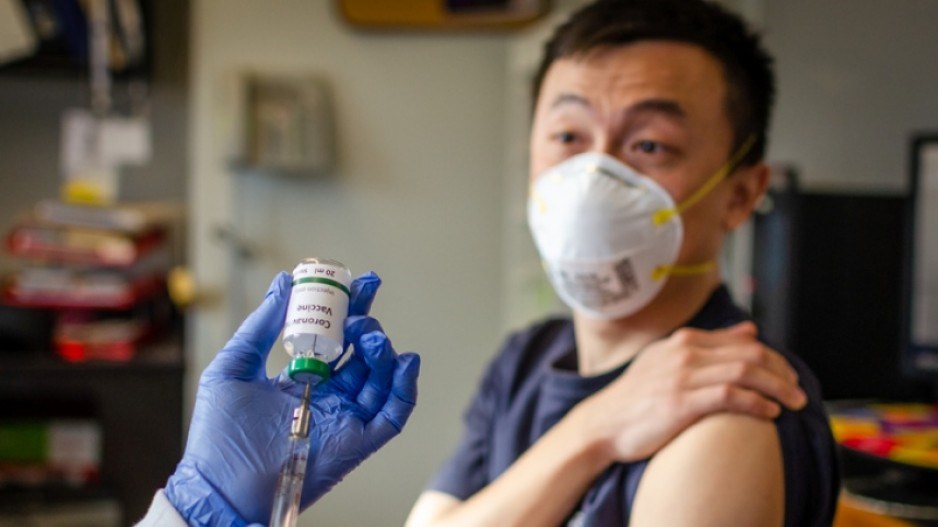So, you received your COVID-19 vaccines — congratulations. Just be careful how you tell others about it.
The Better Business Bureau serving Mainland B.C. is encouraging the public to avoid sharing photos of vaccination cards on social media, since the information on the card — which includes your name and date of birth — makes you vulnerable to identity theft.
“In the excitement to share the good news about being vaccinated and encourage others to do the same, we must still keep in mind that not everyone on social media is trustworthy,” the BBB’s Karla Laird said in a news release.
“If your social media privacy settings are not set high, you may be giving valuable information away for anyone to use. Scammers and fraudsters are quick to see opportunities where they can turn innocent information-sharing into schemes that take advantage of others.”
Such images could also help people create counterfeit vaccination cards. Scammers in Great Britain were recently caught selling fake vaccination cards online, falsely claiming that part of the proceeds were going to local charities.
The BBB offers the following tips to help you share safely on social media:
• Share a photo of a vaccine sticker or use a profile frame instead.
• Review your social media security settings to see what you are sharing and with whom. If you only want friends and family to see your posts, be sure that is how your privacy settings are configured.
— With a file from the Times Colonist
• Be wary of answering popular social media prompts. Sharing your vaccine photo is just the latest social trend. Think twice before participating in other viral personal posts, such as listing all the cars you have owned (including make/model/year), favourite songs, and top 10 TV shows. Some of these “favourite things” are commonly used passwords or security questions for your most valuable online accounts.



